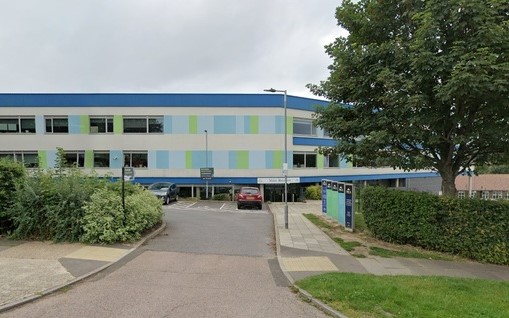Mile Oak library is to close next month, Brighton and Hove City Council said today (Monday 19 June).
The council said that it was “sorry to announce that Mile Oak public library will close on (Friday) 21 July”.
The council said: “The closure is part of the council’s city-wide savings plan to address the budget gap, agreed by councillors at the Brighton and Hove City Council budget meeting in February.
“The decision was based on the low number of customers using the Mile Oak library compared to the city’s other community libraries – and the high costs of running the service within the premises of the local school.
“The Mile Oak library averaged 150 visits per month between April 2022 and March 2023. The average cost per customer visit at Mile Oak was £19.02, compared with an average of 78p across the other Brighton and Hove libraries.
“A public consultation was held on the closure, asking about the needs of current and potential Mile Oak library customers and looked at potential alternatives to meet those needs.
“Over 200 people responded and, while the majority of respondents were not in favour of closing the library, unfortunately there were no viable options for making the savings required without closing the library.
“Most of the current customers already use other libraries in the city and are able to travel to other local libraries.”
Independent councillor Peter Atkinson, who represents North Portslade, said: “I’m extremely disappointed but I’m afraid it appeared inevitable when only myself and another councillor voted to keep it open at a full council meeting some months ago.
“I have asked the council to keep looking for possible alternatives.”
The council said: “Once closed, any remaining usable books and other items at Mile Oak library will be redistributed across the other libraries in the city.
“As part of the budget savings agreed, opening times and staffed hours will also change in some of our community libraries from (Saturday) 1 July.
“We’re changing seven days across the community libraries in Hangleton, Moulsecoomb, Patcham, Rottingdean, Whitehawk and Woodingdean from staffed to ’Libraries Extra’ opening.
“Libraries Extra means the libraries will remain open to library members who can access services when staff aren’t on site.
“These libraries will now open as additional Libraries Extra on the following additional days
- Hangleton – Sunday
- Moulsecoomb – Friday
- Patcham – Monday and Thursday
- Rottingdean – Sunday
- Whitehawk – Wednesday
- Woodingdean – Saturday
…
“You can find all the up to date opening and staffed hours for all public libraries in the city on the council website at www.brighton-hove.gov.uk/library-opening-times.
“Libraries Extra gives residents access to the library when it’s unstaffed using a Libraries Extra card and PIN.
“Anyone not yet registered for Libraries Extra can sign-up by bringing two forms of identification (one of which can be their standard library card) to any community library on a staffed day and a member of staff will help to get you started.”
Councillor Leslie Pumm, chair of the Equalities, Community Safety and Human Rights Committee, said: “I’m very sorry to see the Mile Oak public library close.
“Our library service has done amazingly well to keep libraries open in Brighton and Hove through a time where we’ve seen local authorities across the country closing services.
“Sadly, the low usage and high costs at Mile Oak mean it’s no longer viable to keep open.
“We will be continuing to look at our options for what else we can do to support library users in the area.”
The council added: “Residents already can access many of the city’s libraries seven days a week through the use of Libraries Extra, allowing members to use the library facilities on unstaffed days.
“We also know many of our customers use our e-library as well as our physical stock.”










More Labour cuts.
You do realise John that maintaining this would be financially unsound, and what has been done here is quite conservative? So you’re complaining that Labour has taken a conservative move? It’s the very definition of an oxymoron, my friend.
Paert of the problem is regarding readers as “customers”, the word used throughout the article.
I respectfully disagree, I think the problem is very much the 2642% higher costs compared to other facilities. You simply can’t run a service effectively like that, that is business 101. Not when there are plenty of alternative methods to supply books for the community. For example, I’ve established a book exchange programme. After 25 readers, which was achieved within the first week, it’s already better value than this library.